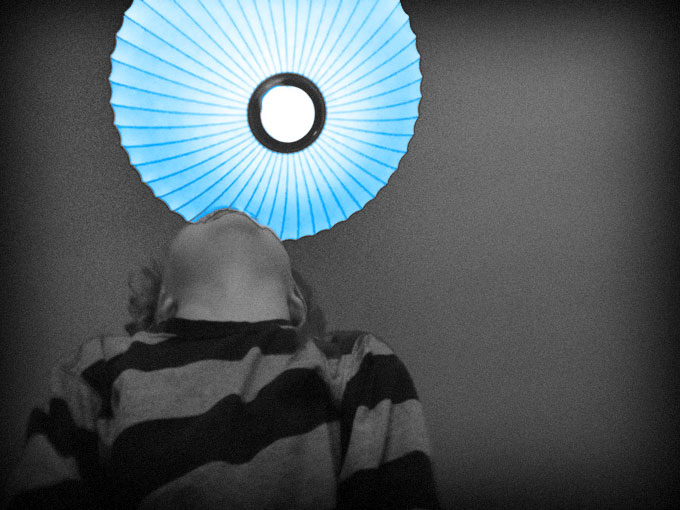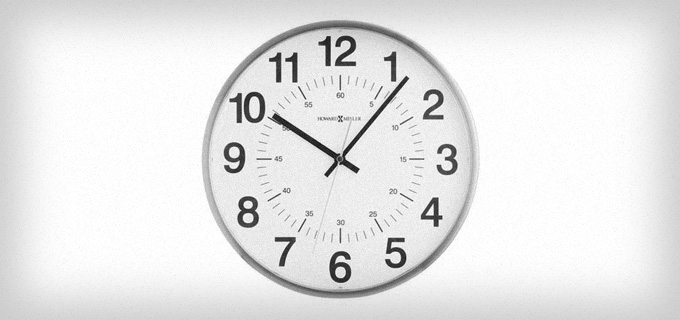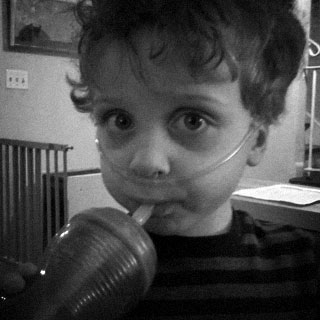 In honor of World Autism Awareness Day, and in order to help shed light on autism, people everywhere are being asked to turn on a blue light today. We did.
In honor of World Autism Awareness Day, and in order to help shed light on autism, people everywhere are being asked to turn on a blue light today. We did.
Dear France: It's Neurological
This morning a friend sent me a story from the BBC ; to say that I am shocked and appalled would be putting it mildly. In short, France still views — and therefore treats — autism as a psychological disorder, rather than a neurological one.
The French system relies on Freudian psychoanalysis and psychotherapy, and rejects the much more widely-adopted — and effective — ABA therapy. The result, as one might expect, is that French children do far more poorly than children elsewhere who live in countries where ABA therapy is the primary basis of the treatment regimen.
"In the UK there are 17 times more university students with autism than in France. It is unacceptable." — Daniel Fasquelle, Member of French Parliament
This reliance on psychotherapy rather than behavior therapy points to an underlying perception that autism is some form of character defect on the part of parents and child alike. It means treating the personality, rather than modifying the behaviors that so dramatically affect the lives of those with autism.
At present, there are no therapies to treat the neurological manifestations of autism, though I do believe those will come in time. Until then, ABA and a few other accepted, proven therapies (e.g., Greenspan's Floortime) represent the best chance for children with autism to lead better lives. It is devastating to think that in a modern country like France, ASD children would not be able to get the help they need because of such a fundamental misperception.
Tick Tock

We're running out of time.
In addition to all the stresses of having a child with health and developmental issues, there is the added worry that we're not doing enough right now, that precious time is slipping by.
We're told that the toddler / pre-schooler years are when the brain is most plastic; we're urged to consider these early years as the critical time to get as much help as much as possible; we're reminded that there is a tiny window of time when significant, lifelong changes can occur.
But there are only so many hours in a day, so many dollars in a bank account, so much energy parents can muster. There are only so many therapists we can manage, so many schools we can visit, so many tasks we can tackle. And then there are the obligations — jobs, family, etc. — that take time away from the work that needs to be done.
 And the clock ticks on, every moment that passes an accusatory question: Did we do enough exercises today? Did we work hard enough to counteract the effects of autism? Or did we squander our precious time, and thus jeopardize a bit of our son's future?
And the clock ticks on, every moment that passes an accusatory question: Did we do enough exercises today? Did we work hard enough to counteract the effects of autism? Or did we squander our precious time, and thus jeopardize a bit of our son's future?
I believe there could never be enough time to do all the work that's needed, to take all the steps required, to try to set C on the right course. Sometimes I feel I'm in a state of panic.
If I'm not careful, I can become short with people I believe to be wasting my time. I feel guilty for the tiny bits of time I spend on myself throughout the day, so I try to rationalize them by saying those moments on Facebook or walking to and from the subway are helping me stay sane. I even look upon keeping this blog as a bit of a guilty pleasure.
I'm constantly loading my Instapaper account with articles on autism: scholarly, scientific, anecdotal, anything that will provide more insights, more understanding, more hope.
We don't (and can't) take a vacation, and haven't for several years. We rarely enjoy the so-called "date night." Instead, when the boys go to sleep, we eat our dinner and talk about C, his progress, his therapies, and what his future might hold.
I wish, for just one day, we could take a break from it all.
But the clock doesn't stop, so we can't either.
Thank You, Girls
 In C's preschool, there are a couple of girls who have taken C under their wing, who have become protective of him, and who seem to genuinely care about him.
In C's preschool, there are a couple of girls who have taken C under their wing, who have become protective of him, and who seem to genuinely care about him.
One little girl, for example, keeps an eye out for his oxygen tube and says he is "the cream cheese on a bagel." (I'm guessing that's a pretty big compliment for a three-year-old). Another girl says C is "her very favorite boy," and then runs her fingers through his curls.
I am so grateful for this attention, not just for the obvious reason that it brings normalcy into my son's life, but because I can see C being drawn out by it. On a couple of occasions recently, I've actually seen him join in activities with others on his own, without prompting. I know this must be due, in some small part, to the kindness being bestowed upon him by his peers.
One of these little girls came by for a play date this afternoon and, when leaving, patted C on the head; he was facing me, so she didn't see the broad smile that spread across his face.
I did.
The Other One
 There's another boy in all of this, the other twin, the one who might someday read this blog and wonder if we considered him as much as we consider his brother. The one who sees all the special attention and extra time being spent helping C. The one who gets shuffled around during C's many appointments and therapy sessions, handed off from one person to another.
There's another boy in all of this, the other twin, the one who might someday read this blog and wonder if we considered him as much as we consider his brother. The one who sees all the special attention and extra time being spent helping C. The one who gets shuffled around during C's many appointments and therapy sessions, handed off from one person to another.
I could say so much about this little boy. I could mention his infectious sense of humor, his kind disposition, his empathic attitude toward others (especially C). I could go on for hours telling stories about his shenanigans, of which there are many.
I could talk about how easily sharing comes to him, or how emotional he gets when he hears a sad piece of music. I could talk about how my heart swells when he says, "Daddy, hold my hand." (This last he does all the time.)
I could retell the story of how we almost lost him, too, when he developed a perforated intestine just a few days old in the NICU, and how I eagerly gave him my blood in the hopes that it would not only heal him, but bring us closer.
Yes, I could say many things about this other boy. For the moment, however, I'll just say this to him directly: "M, no father could ask for a better son. You've made me happier than I'm sure I deserve to be, and I am proud of you beyond words. I love you."
